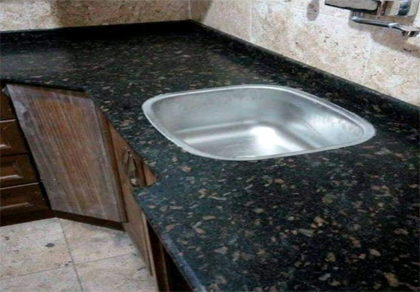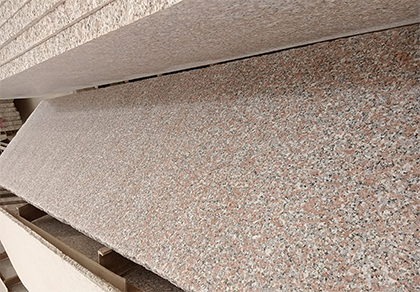On the other hand, granite is a natural stone, formed from molten magma deep within the earth’s crust. It is composed of various minerals such as quartz, feldspar, and mica, which give it unique patterns and colors. Granite is a porous material, which means it requires sealing to prevent staining. It is also prone to scratches and chipping, although it can be repaired with professional help. Granite requires regular maintenance, such as cleaning with a mild detergent and resealing every year or two.
When it comes to aesthetics, both quartz material and granite offer a wide range of options. Quartz material can mimic the look of natural stones, but it has a more uniform appearance due to its engineered nature. Granite, on the other hand, has a more natural look with unique patterns and colors that cannot be replicated. Granite is also heat-resistant, which makes it ideal for kitchen countertops.
In terms of cost, quartz material is generally more expensive than granite due to its engineered nature. However, the cost can vary depending on the quality, patterns, and thickness of the slab.
Ultimately, the choice between quartz material and granite comes down to personal preference and lifestyle factors. Quartz material is a durable, low-maintenance option with a uniform appearance, while granite offers a natural, unique look with more maintenance requirements. Both materials are excellent choices for countertops and can add value and style to any home.
The Properties of Quartz:
Quartz material is a mineral that has many properties, including:
Hardness: Quartz material is one of the hardest minerals on earth, with a hardness rating of 7 on the Mohs scale (which measures the hardness of minerals from 1 to 10). This makes it an extremely durable and long-lasting material, resistant to scratches and chips.
Density: Quartz material is a dense material, which makes it resistant to staining and water absorption. This property also makes it ideal for use in kitchen and bathroom countertops, as it is less likely to absorb spills or moisture.
Color: Quartz material comes in a wide range of colors and patterns, from subtle shades of white and gray to bold, vibrant hues. This makes it a versatile material that can be used in a variety of design applications.
Heat resistance: Quartz material is highly heat-resistant, making it ideal for use in kitchen countertops and other areas where heat is a concern. It can withstand temperatures of up to 300 degrees Fahrenheit without cracking or discoloring.
Chemical resistance: Quartz material is resistant to many chemicals, including acids and alkalis. This makes it a popular choice for laboratory countertops and other chemical-resistant applications.
Overall, quartz material is a durable, versatile, and attractive material that is well-suited for a wide range of applications. Its properties make it an excellent choice for use in countertops, flooring, and other surfaces that require strength, durability, and aesthetic appeal.







